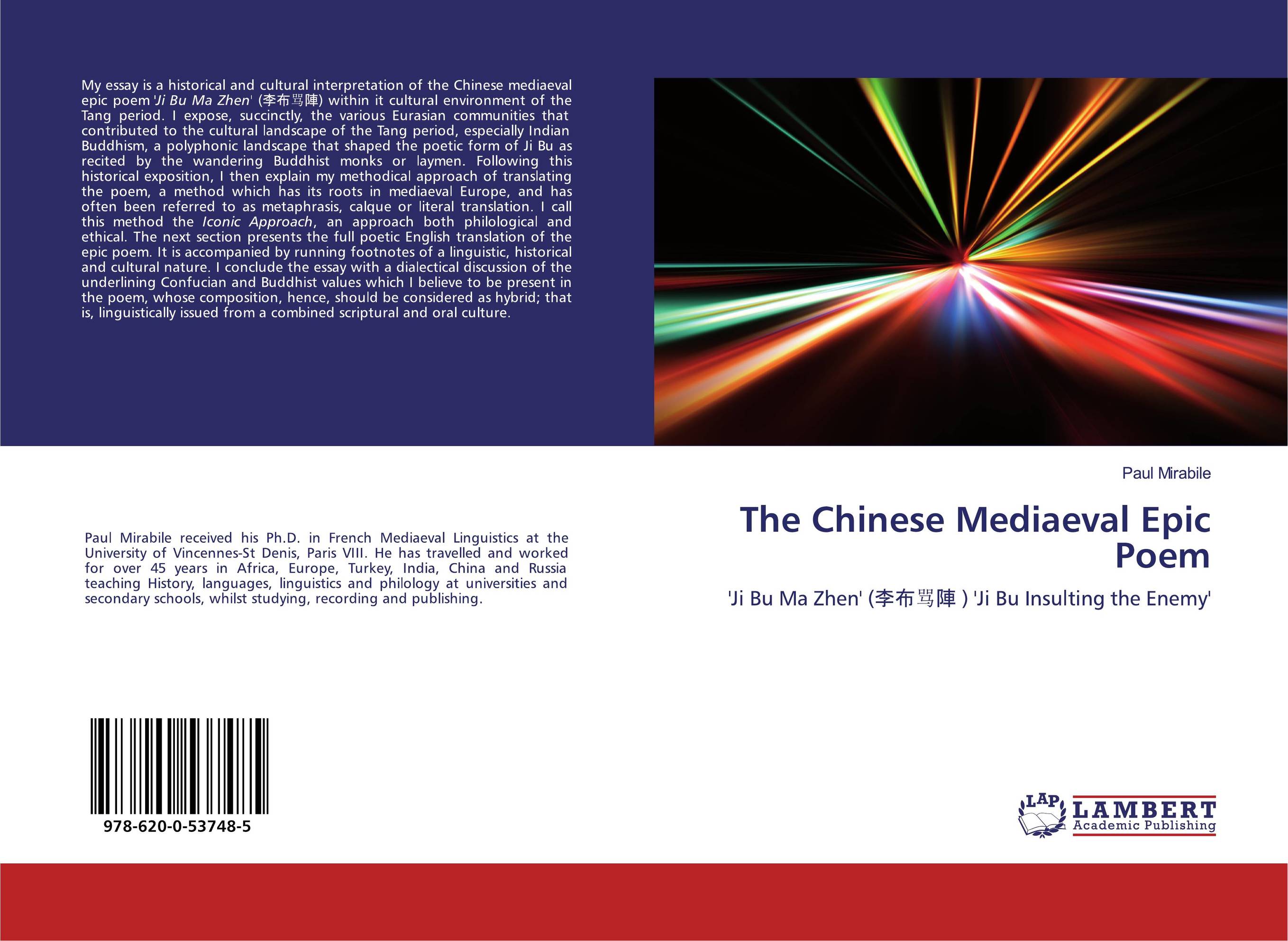| Поиск по каталогу |
|
(строгое соответствие)
|
- Профессиональная
- Научно-популярная
- Художественная
- Публицистика
- Детская
- Искусство
- Хобби, семья, дом
- Спорт
- Путеводители
- Блокноты, тетради, открытки
The Chinese Mediaeval Epic Poem. 'Ji Bu Ma Zhen' (???? ) 'Ji Bu Insulting the Enemy'

В наличии
| Местонахождение: Алматы | Состояние экземпляра: новый |

Бумажная
версия
версия
Автор: Paul Mirabile
ISBN: 9786200537485
Год издания: 2020
Формат книги: 60×90/16 (145×215 мм)
Количество страниц: 80
Издательство: LAP LAMBERT Academic Publishing
Цена: 23919 тг
Положить в корзину
Позиции в рубрикаторе
Отрасли знаний:Код товара: 567373
| Способы доставки в город Алматы * комплектация (срок до отгрузки) не более 2 рабочих дней |
| Самовывоз из города Алматы (пункты самовывоза партнёра CDEK) |
| Курьерская доставка CDEK из города Москва |
| Доставка Почтой России из города Москва |
Аннотация: My essay is a historical and cultural interpretation of the Chinese mediaeval epic poem 'Ji Bu Ma Zhen' (????) within it cultural environment of the Tang period. I expose, succinctly, the various Eurasian communities that contributed to the cultural landscape of the Tang period, especially Indian Buddhism, a polyphonic landscape that shaped the poetic form of Ji Bu as recited by the wandering Buddhist monks or laymen. Following this historical exposition, I then explain my methodical approach of translating the poem, a method which has its roots in mediaeval Europe, and has often been referred to as metaphrasis, calque or literal translation. I call this method the Iconic Approach, an approach both philological and ethical. The next section presents the full poetic English translation of the epic poem. It is accompanied by running footnotes of a linguistic, historical and cultural nature. I conclude the essay with a dialectical discussion of the underlining Confucian and Buddhist values which I believe to be present in the poem, whose composition, hence, should be considered as hybrid; that is, linguistically issued from a combined scriptural and oral culture.
Ключевые слова: Chinese mediaeval epic, Mediaeval Linguistics, Chinese history, Eurasian communities



